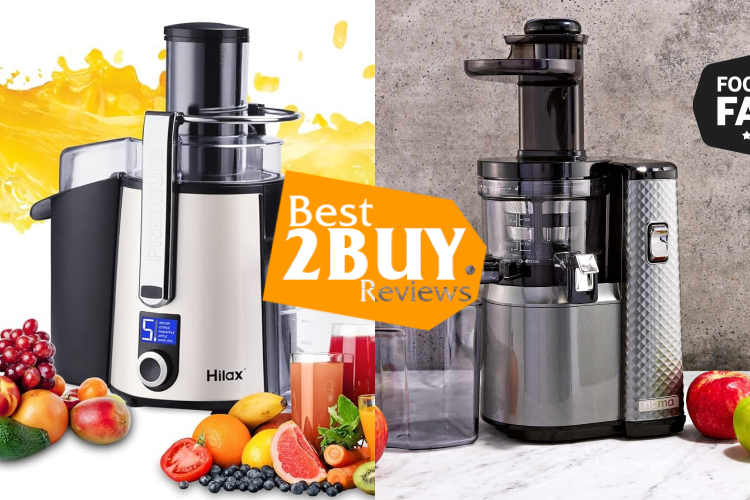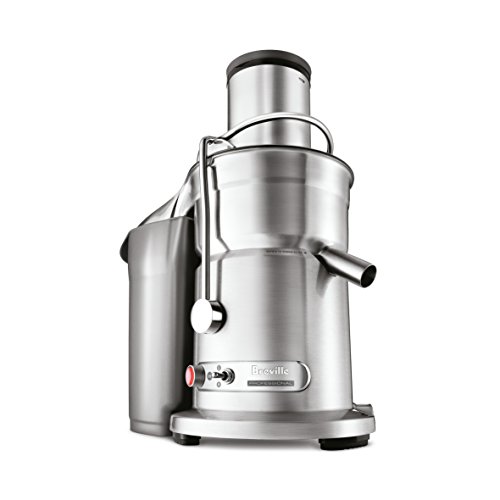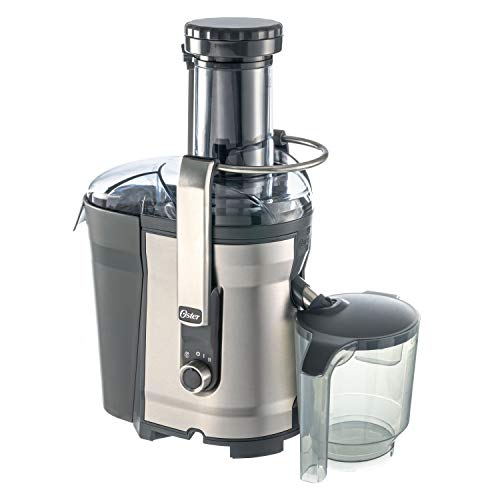Hi my readers! It’s Samantha Kim from best2buy.reviews. Today, I'm excited to share some tips for choosing Juicers. It will help you easily to decide! Let’s check it now!
- 1. Juicers
- 2. 1. Centrifugal Juicers:
-
- 2.1.1. Advantages:
- 2.1.2. Disadvantages:
- 2.2. 2. Masticating Juicers (Cold Press or Slow Juicers):
- 2.2.1. Advantages:
- 2.2.2. Disadvantages:
- 2.3. 3. Twin Gear Juicers:
- 2.3.1. Advantages:
- 2.3.2. Disadvantages:
- 2.4. 4. Citrus Juicers:
- 2.4.1. Advantages:
- 2.4.2. Disadvantages:
- 2.5. 5. Auger Juicers:
- 2.6. 6. Hydraulic Press Juicers:
- 2.6.1. Advantages:
- 2.6.2. Disadvantages:
-
- 3. Why should buy Juicers?
- 3.1. Health Benefits:
- 3.2. Convenience:
- 3.3. Variety in Diet:
- 3.4. Weight Management:
- 3.5. Detox and Cleanse:
- 3.6. Dietary Preferences:
- 3.7. Homemade and Fresh:
- 3.8. Enjoyment and Creativity:
- 4. How to choose Juicers?
- 4.1. Type of Juicer:
- 4.2. Juicing Purpose:
- 4.3. Nutrient Retention:
- 4.4. Ease of Use:
- 4.5. Cleaning and Maintenance:
- 4.6. Juice Yield:
- 4.7. Speed Settings:
- 4.8. Noise Level:
- 4.9. Budget:
- 4.10. Versatility:
- 4.11. Size and Storage:
- 4.12. Brand and Reviews:
- 4.13. Warranty:
- 4.14. Safety Features:
- 4.15. Energy Efficiency:
- 5. In conclusion
Juicers
Juicers are kitchen appliances designed for extracting juice from fruits and vegetables. There are different types of juicers available on the market, each with its own features and functions. Here are some common types of juicers:
Centrifugal Juicers:
-
- These juicers use a high-speed spinning blade to extract juice from fruits and vegetables.
- They are typically more affordable than other types of juicers.
- However, they may produce more heat and noise and may not be as effective in extracting juice from leafy greens.

Masticating Juicers (Cold Press or Slow Juicers):
- These juicers use a slower, crushing and squeezing motion to extract juice.
- They are more efficient at extracting juice from leafy greens, and they produce juice with less oxidation, which means it retains more nutrients.
- Masticating juicers are generally quieter but can be more expensive.
Twin Gear Juicers:
- These juicers have two interlocking gears that crush and press the juice out of fruits and vegetables.
- They are known for their high juice yield and the ability to juice a wide range of produce, including wheatgrass.
- Twin gear juicers are usually more expensive and may have a steeper learning curve.
Citrus Juicers:
- Specifically designed for citrus fruits like oranges, lemons, and limes.
- They come in manual and electric varieties.
- Manual citrus juicers require hand squeezing, while electric ones automate the process.
Auger Juicers:
- Similar to masticating juicers, they use a rotating auger to crush and squeeze juice.
- They are known for their versatility and ability to handle a variety of fruits and vegetables.
Hydraulic Press Juicers:
- These juicers use a hydraulic press to extract juice, typically used in commercial settings.
- They are known for producing juice with minimal oxidation and maximum nutrient retention.
Advantages and disadvantages of each types Juicers
1. Centrifugal Juicers:
Advantages:
- Speed: Centrifugal juicers are fast, making them convenient for quick juicing.
- Affordability: They are often more budget-friendly compared to other types.
- Ease of Use: Centrifugal juicers are generally easy to operate and clean.
Disadvantages:
- Oxidation: High-speed operation may lead to more oxidation, reducing nutrient content and shelf life of the juice.
- Noise: They can be noisy during operation.
- Less Efficient with Leafy Greens: May not extract juice effectively from leafy greens.
2. Masticating Juicers (Cold Press or Slow Juicers):
Advantages:
- Nutrient Retention: Slower operation minimizes heat and oxidation, preserving more nutrients.
- Efficiency with Leafy Greens: Effective at juicing leafy greens and wheatgrass.
- Versatility: Can handle a variety of produce.
Disadvantages:
- Price: Masticating juicers are often more expensive.
- Speed: Slower operation may be less convenient for those in a hurry.
3. Twin Gear Juicers:
Advantages:
- High Juice Yield: Known for extracting a high yield of juice.
- Versatility: Can handle a wide variety of fruits, vegetables, and even wheatgrass.
- Nutrient Retention: Like masticating juicers, minimizes heat and oxidation.
Disadvantages:
- Price: Twin gear juicers are usually more expensive.
- Complexity: May have a steeper learning curve.
4. Citrus Juicers:
Advantages:
- Specialized for Citrus: Specifically designed for extracting juice from citrus fruits.
- Ease of Use: Simple to operate and often more affordable.
Disadvantages:
- Limited Functionality: Designed for citrus fruits only.
- Less Versatile: Not suitable for other types of produce.
5. Auger Juicers:
Advantages:
- Versatility: Can handle a wide range of fruits and vegetables.
- Nutrient Retention: Operates at lower speeds, preserving more nutrients.
- Efficiency with Leafy Greens: Effective at juicing leafy greens.
Disadvantages:
- Price: May be more expensive than centrifugal juicers.
- Speed: Slower compared to centrifugal juicers.
6. Hydraulic Press Juicers:
Advantages:
- Maximum Nutrient Retention: Operates with minimal heat and oxidation.
- High Juice Quality: Produces high-quality juice with a smooth texture.
- Suitable for Commercial Use: Often used in commercial settings.
Disadvantages:
- Price: Hydraulic press juicers are typically more expensive.
- Complexity: May be more intricate and require more maintenance.
Why should buy Juicers?
Health Benefits:
- Nutrient Intake: Juicing allows you to consume a concentrated amount of vitamins, minerals, and antioxidants found in fruits and vegetables in an easily digestible form.
- Enzymes and Phytochemicals: Freshly extracted juice contains enzymes and phytochemicals that may contribute to overall health and well-being.
Convenience:
- Quick and Easy: Juicing can be a convenient way to consume a variety of fruits and vegetables quickly, especially for those with busy lifestyles.
- On-the-Go Nutrition: You can prepare a nutritious drink and take it with you, providing a healthy option when you're away from home.
Variety in Diet:
- Diverse Flavors: Juicing allows you to experiment with different fruit and vegetable combinations, adding variety to your diet.
- Incorporating Greens: Juicing is an easy way to include leafy greens and vegetables that you might not enjoy eating whole.
Weight Management:
- Low-Calorie Option: Freshly squeezed juice can be a lower-calorie alternative to sugary beverages, potentially supporting weight management efforts.
- Hydration: Juicing can contribute to your daily fluid intake, helping to keep you hydrated.
Detox and Cleanse:
- Detoxification: Some people use juicing as part of a short-term detox or cleanse to eliminate toxins from the body.
- Resetting Eating Habits: A juice cleanse can serve as a reset for unhealthy eating habits, although it's important to approach such practices with caution and under guidance.
Dietary Preferences:
- Plant-Based Lifestyle: For those following a plant-based or vegetarian/vegan diet, juicing can be a valuable way to increase the intake of plant-derived nutrients.
- Smoothie Bowls and Recipes: Juicers are not limited to just juice; they can be used to create smoothie bowls, sauces, and other recipes.
Homemade and Fresh:
- Quality Control: When you juice at home, you have control over the quality and freshness of the ingredients.
- No Preservatives or Additives: Homemade juice typically contains no preservatives or additives, providing a more natural and wholesome option.
Enjoyment and Creativity:
- Culinary Exploration: Juicing allows for creativity in combining flavors and discovering new taste sensations.
- Family and Social Activity: Juicing can be a fun and interactive activity for families or social gatherings.
How to choose Juicers?
Some key considerations to help you make an informed decision:
Type of Juicer:
- Consider the type of juicer that aligns with your juicing preferences. Common types include centrifugal, masticating (slow or cold press), twin gear, citrus, auger, and hydraulic press juicers.
Juicing Purpose:
- Determine the primary fruits and vegetables you intend to juice. Some juicers are better suited for specific types of produce, such as leafy greens, hard fruits, or citrus.
Nutrient Retention:
- If preserving maximum nutrients is a priority, consider a masticating or twin gear juicer, as they operate at lower speeds, reducing heat and oxidation.
Ease of Use:
- Assess the ease of use, assembly, and disassembly of the juicer. If convenience is crucial, a simple and user-friendly design may be preferable.
Cleaning and Maintenance:
- Consider how easy it is to clean the juicer components. Look for models with dishwasher-safe parts or simple cleaning processes to make maintenance hassle-free.
Juice Yield:
- Some juicers extract more juice from the same amount of produce. If maximizing juice yield is essential to you, consider a juicer known for high efficiency.
Speed Settings:
- Centrifugal juicers operate at high speeds, while masticating juicers work at slower speeds. Depending on your preferences, you may choose a juicer with adjustable speed settings.
Noise Level:
- Centrifugal juicers tend to be noisier due to their high-speed operation. If noise is a concern, consider a masticating juicer, which is generally quieter.
Budget:
- Establish a budget based on your financial considerations. Juicer prices can vary widely, so determine how much you're willing to invest in a quality appliance.
Versatility:
- Some juicers can perform additional functions, such as making nut butter, baby food, or sorbets. If versatility is important, explore models with multiple capabilities.
Size and Storage:
- Consider the size of the juicer and whether it fits into your kitchen space. If you have limited counter space, a compact or vertical juicer might be more suitable.
Brand and Reviews:
- Research different brands and read customer reviews to gauge the reliability and performance of the juicer. Reliable brands often provide better warranties and customer support.
Warranty:
- Check the warranty offered by the manufacturer. A longer warranty period may indicate the manufacturer's confidence in the product's durability and performance.
Safety Features:
- Look for safety features, such as overload protection or automatic shut-off, to ensure the juicer operates safely.
Energy Efficiency:
- Consider the energy consumption of the juicer. Energy-efficient models may be more environmentally friendly and cost-effective in the long run.
By carefully considering these factors, you can choose a suitable juicer.
In conclusion
If you want to buy Juicers, check out websites. We noted top products which highly appreciated. You can refer and buy it in store or shopping online. If you buy online, check out Amazon by click: “Buy it on Amazon”, it’s very convenient. Hope you will find and satisfied with your selection.
I’m very happy to response your question. If you need our support, don’t hesitate, kindly comment below. I’m always available to response you. Should read carefully before paying anything.











